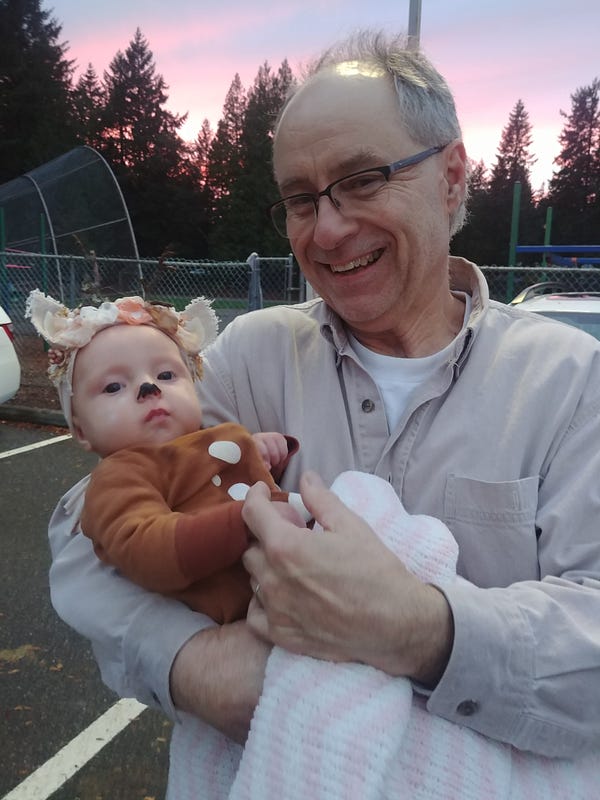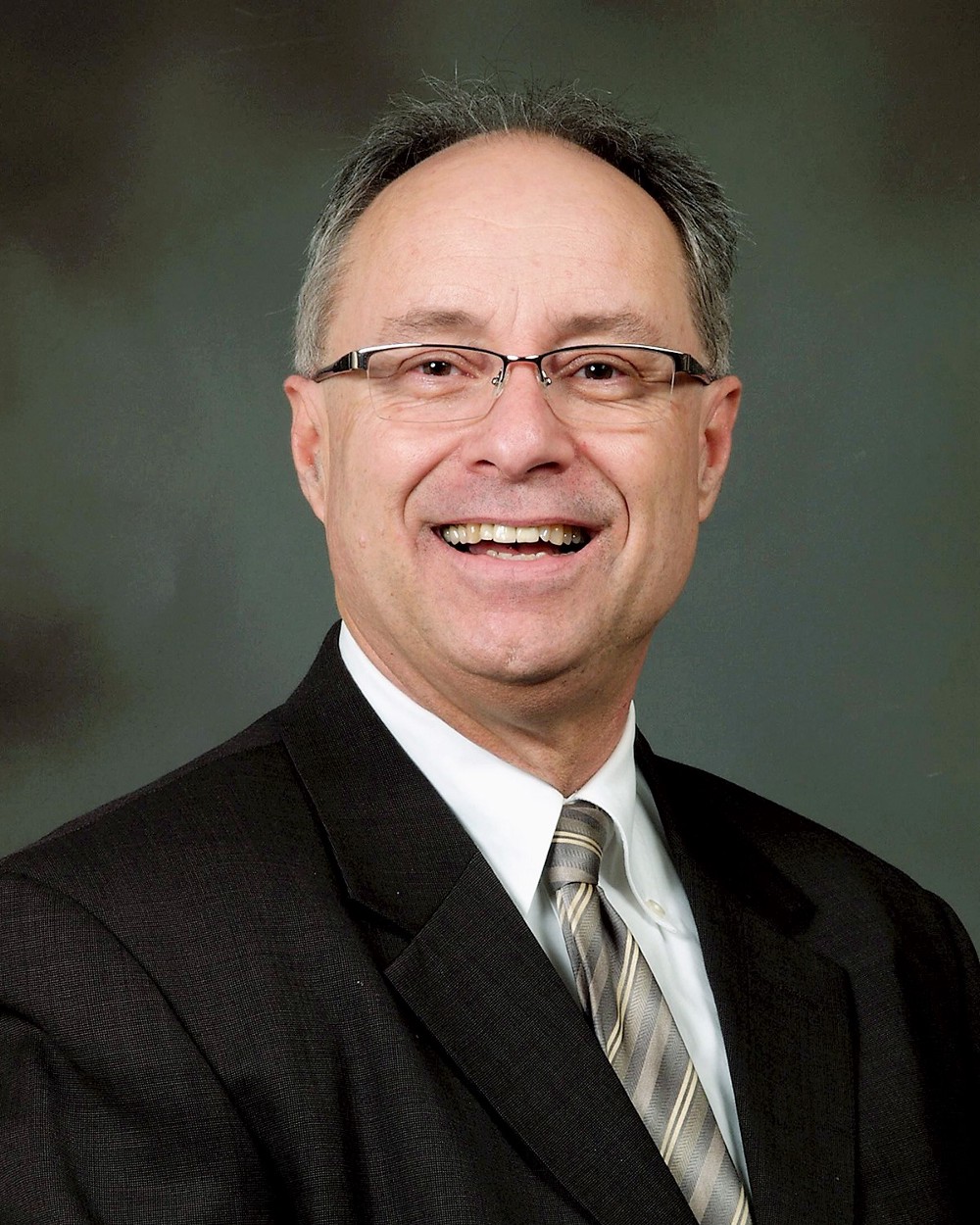Always do what is right for the clients rather than trying to close a quick sale. You will get a lot more referrals that way. People can sense your motives and if it’s to do what best for them, they will trust you and refer you to the people they know. That may mean walking away from a short-term sale to gain a long-term planning relationship and referrals.
I had the pleasure to interview Rob Harkson, Chief Financial Planner at Phase 2 Wealth Advisors in Gig Harbor, Washington. Serving his community as a financial services professional for the past 13 years, Bob is a Certified Financial Planner® and a Retirement Income Certified Professional®. In addition, Bob also holds the Series 7, 6, 66 and 63 Securities Licenses and Washington State License for Life, Health and Long Term Care insurance. Bob enjoys developing comprehensive and holistic financial plans for his clients, placing particular emphasis on tax planning and legacy planning, when appropriate. Living in Gig Harbor since 1992, Bob is active in his community, volunteering with Young Life and his Church. He enjoys boating, woodworking, auto repair and photography. Most of all he loves to spend time with his wife of 38 years, children, and grandchildren.
Can you tell us a story about what brought you to this specific career path?
I lost my job in a senior management position at a large regional computer training company in 2003. I went to a job fair that year and heard a presentation by a long-term care insurance company named Genworth that intrigued me. My mother was on a care facility from 1988 until her death in 2008 as a result of a massive stroke. It was economically devastating to my parents’ finances. I joined Glenworth’s salesforce in early 2004 and quickly found out that I was drawn to helping families plan their finances. A friend of mine worked for a Fortune 500 Financial services company and set up an interview for me. I got the job and worked there for 12 years, after which I set up an independent firm with my business partner.
Can you share a story about the funniest mistake you made when you were first starting in the industry? Can you tell us what lesson you learned from that?
I was tidying up my office before an important meeting with a client. As I bent over to shred some documents, my tie got caught in the shredder. I felt sheepish and quickly removed my tie. Lesson learned, do not shred with a tie on.
I also remember having a married couple in to meet. The husband was chatty and domineering, the wife was on the quite side. I assumed she was not interested. I made the mistake of always addressing the husband. The wife finally said, “do you care about what I think?” I’ve learned to make eye contact with both members of a couple and ask what each of them think and feel. Don’t let one spouse speak for the other spouse or partner.
Are you working on any exciting new projects now? How do you think that will help people?
We are excited about asset based long-term care insurance. These are hybrid products that combine a long-term care benefit and life insurance. There are many people who don’t want to spend a lot of money on long-term care premiums over a long period of time. They are concerned they will pay out a lot of money on premiums and never get a benefit. Long-term care insurance premiums have risen significantly over the past few years. Life Insurance / Asset based long-term care work well for those who want to self-insure but pass on some of the risk to an insurance company. This type of product is ideal for someone who has the resources to pay a large, one time premium, usually starting at $50,000 per person. Rather than having $50,000 in a savings pay for care, that amount can be leveraged for care expenses.
For example, a 61-year-old healthy male might pay a single payment of $50,000. In return, he will receive up to $225,000 of qualified care at home or at an approved facility. He can receive up to approximately $3,100 of care per month. If he never uses the policy, his beneficiaries with received a cash death benefit of approximately $75,000. If he spends less than $75,000 on care paid by the policy, then the beneficiaries will receive $75,000 less than the amount paid out in care. This kind of policy will help offset the cost of care for those who have the resources to make up the difference.
Are you able to identify a “tipping point” in your career when you started to see success? Did you start doing anything different? Is there a takeaway or lessons that others can learn from that?
It was after I became a Certified Financial Planner. I was able to give advice over a broader spectrum of issues. It gave me more credibility. Financial planning is far more than helping people invest for their future or buy life insurance. It’s about protecting their future, tax planning, estate planning and health care planning. I was able to plan more comprehensively and be a much better resource for my clients. I gave me a lot more confidence in the advice I gave.
Take the time to educate yourself in areas that are critical to you clients. Get advanced training in investing, insurance, taxation, estate planning and healthcare planning. These skills will help a producer sell more product and help their clients. We have new clients that come in and their former advisor did a reasonable job on helping them grow their savings or sell them life insurance but could not help them in many other critical areas. Additional knowledge opens the door to more sales opportunities. These areas are often ignored because the financial professional does not understand them or is in a hurry to make a sale. Poor planning can dismantle a lifetime of saving and investing. There are a lot of investment and insurance producers who can sell product and make a great income, but there are few who are well educated planners that look at the big picture and take the time to help the client plan their financial future.

What advice would you give to other people in the insurance field to thrive and avoid burnout?
1. Keep learning so you have more to offer your clients. This will allow you to diversify what you can offer and serve your client better.
2. Always remember how important the service you provide is. You help to protect individual, families for a long-term retirement and economic calamity in the event of an untimely death
3. Always do what is right for the clients rather than trying to close a quick sale. You will get a lot more referrals that way. People can sense your motives and if it’s to do what best for them, they will trust you and refer you to the people they know. That may mean walking away from a short-term sale to gain a long-term planning relationship and referrals.
As an “insurance insider”, you know much more about insurance than most consumers. If your loved one wanted to buy a policy from another person, which 5 things would you advise them to find out about before committing to a policy? Can you give an example or story for each?
1. Establish how much you need to provide for those who depend on you. A rule of thumb would be 10 times your annual earing at the minimum. I had a client that had 3 small children and a stay at home spouse. He was the sole provider. He thought that his $100,000 policy he got through employment would be enough. He did not understand if he loses his job, he loses his life insurance. The $100,000 would cover the bills for less under 2 years. His rational was that his spouse could sell the house and go back to work. He forgot about day care and where they would live if the spouse was forced to sell the home.
2. Understand what the social security income benefit would be for the surviving spouse and minor dependents. You can find this on your Social Security statement that can be downloaded from the social security website. I had a client tell me they didn’t need life insurance because his spouse and minor children would get a Social Security benefit and their spouse could work. He did not realize that when you collect survivor Social Security benefits, you are limited to the amount of income you can make. And the benefit was not nearly enough to cover things like health insurance, education etc.
3. How much money can your “easily” afford to pay monthly for insurance. I you can’t pay, you lose the policy. Buy as much life insurance as you can easily afford.
4. Find an advisor you can trust, one with experience in the industry. I have clients who were sold very expensive permanent life insurance policies that built up cash value, but the death benefit was relatively low. Often time the agents were new in the business and a friend of the people who bought the policy. Life insurance should not be bought as an investment vehicle. When you have kids, you need large amounts of insurance that is inexpensive and covers you for a period of time. This is called term insurance. This provides the biggest bang for the buck to provide for your family and cover what would be lost if you died, like retirement accumulation. Cash value life insurance (whole life, universal life) has its place and can be used for long term planning for those who have the resources.
5. Act Now! If you do not have enough life insurance, get some while you are healthy and younger. I had a friend who was in the life insurance business, he kept trying to schedule an appointment with a young father and mother to purchase life insurance. They knew they needed coverage, but for about a year would call to schedule a meeting and then cancel because they were too busy. Tragically the father was killed while on the job, leaving the widow economically devastated. Imagine having to grieve the loss of your spouse and be impoverished.
Insurance agencies or companies are often known to be very creative and innovative marketers. Do you use any clever and innovative marketing strategies that you think large legacy companies should consider adopting?
My clever marketing strategy is to become well versed in the in and outs of planning to better serve my client. We do seminars that allow us to show our expertise in various areas and distinguish us from the pack. I think large insurance companies need to “up” the requirement for education in the field. The turnover in the life insurance business is very high. New representatives need to be mentored and trained. It is a small minority that survive their first three years. It’s a hard business with lots of pressure to produce. Gaining expertise in the field should continuing long term requirement. Imagine a company being able to say “we have the best trained representatives in the business.”
None of us are able to achieve success without some help along the way. Is there a particular person who you are grateful towards who helped get you to where you are? Can you share a story about that?
Larry was the man who first trained me when I started at a fortune 500 financial services company. What stuck with me most were some of the things he said to me. “You don’t know what you don’t know and that not only applies to you, Bob, but also your client.” “Listen to find out what’s important to them, not talk about what most important to you”. The most important expertise to attain is to listen. Be attentive. Let the client do most of the talking.

You are a person of great influence. If you could inspire a movement that would bring the most amount of good to the most amount of people, what would that be? You never know what your idea can trigger. 🙂
“What’s wrong with the world today…I am” G.K. Chesterton. Work on yourself. When you change, you enable those around you to change. I try to live by the following ethic:
· Have unconditional positive regard for all people at all times. (think highly of everyone).
· Don’t pre-judge anyone, everyone has a story.
· Be patient with people.
· Be yourself.
· Listen carefully and talk minimally.
· Genuinely care for those you serve and go out of your way to do so.
· Do your job with excellence. Constantly train yourself in your profession.
How can our readers follow you on social media?
We are just starting the process of creating a Facebook page with the help of M&O Marketing. Our web page is phase2wealthadvisors.com.
About the Author:
Matt Schmidt is the founder of DiabetesLifeSolutions.com which specializes in helping people with diabetes find affordable life insurance. Matt founded the company after his father was diagnosed with diabetes in 2010. He is also founded Diabetes365.org to provide helpful information for those living with diabetes. Matt is also pre-diabetic.


